Land Hey(Sisters duo|“The Power of Sign Language” delivered by sisters)
2025.10.09
Sign language interpreter
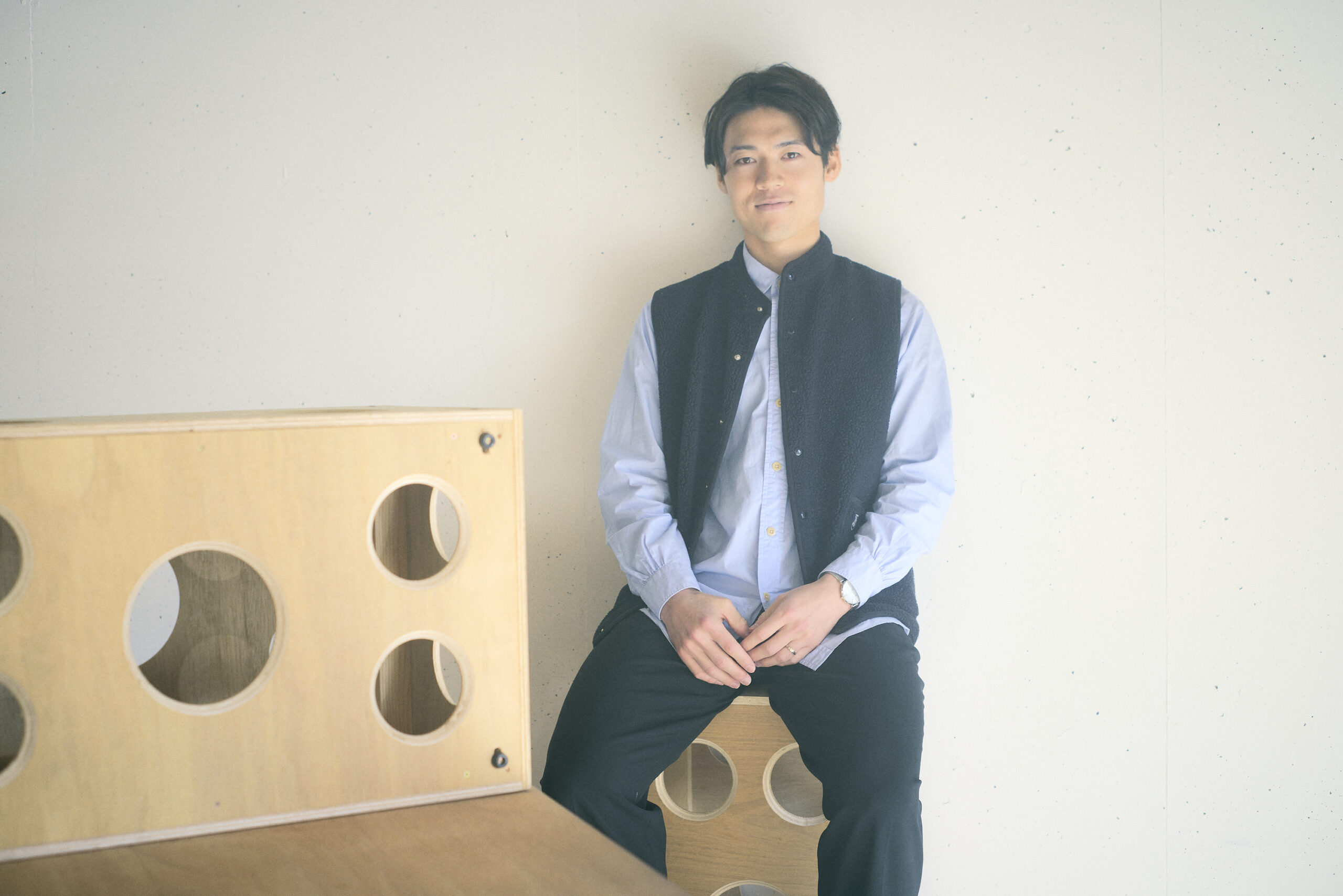
2024.02.21
Age 25. As a freelance sign language interpreter
he has earned the trust of many athletes.
He started his career as a sign language interpreter after meeting his former teacher at university.
What is the “sign language interpreting” that he is aiming for…?
目次
-How did Hoshina-san come into contact with sign language?
Hoshina-san My grandparents are Deaf and sign language speakers, but I was able to communicate with them through written and oral communication and my mother’s sign language when I was a child, so I did not really feel the need to use sign language myself at the time.
The turning point for me was a class at university. At Asia University, where I attended, there was at least one deaf person in each grade, and sign language classes were offered as a general subject. When I entered the university, I made friends and seniors who were deaf, and I wanted to talk more with them in sign language.
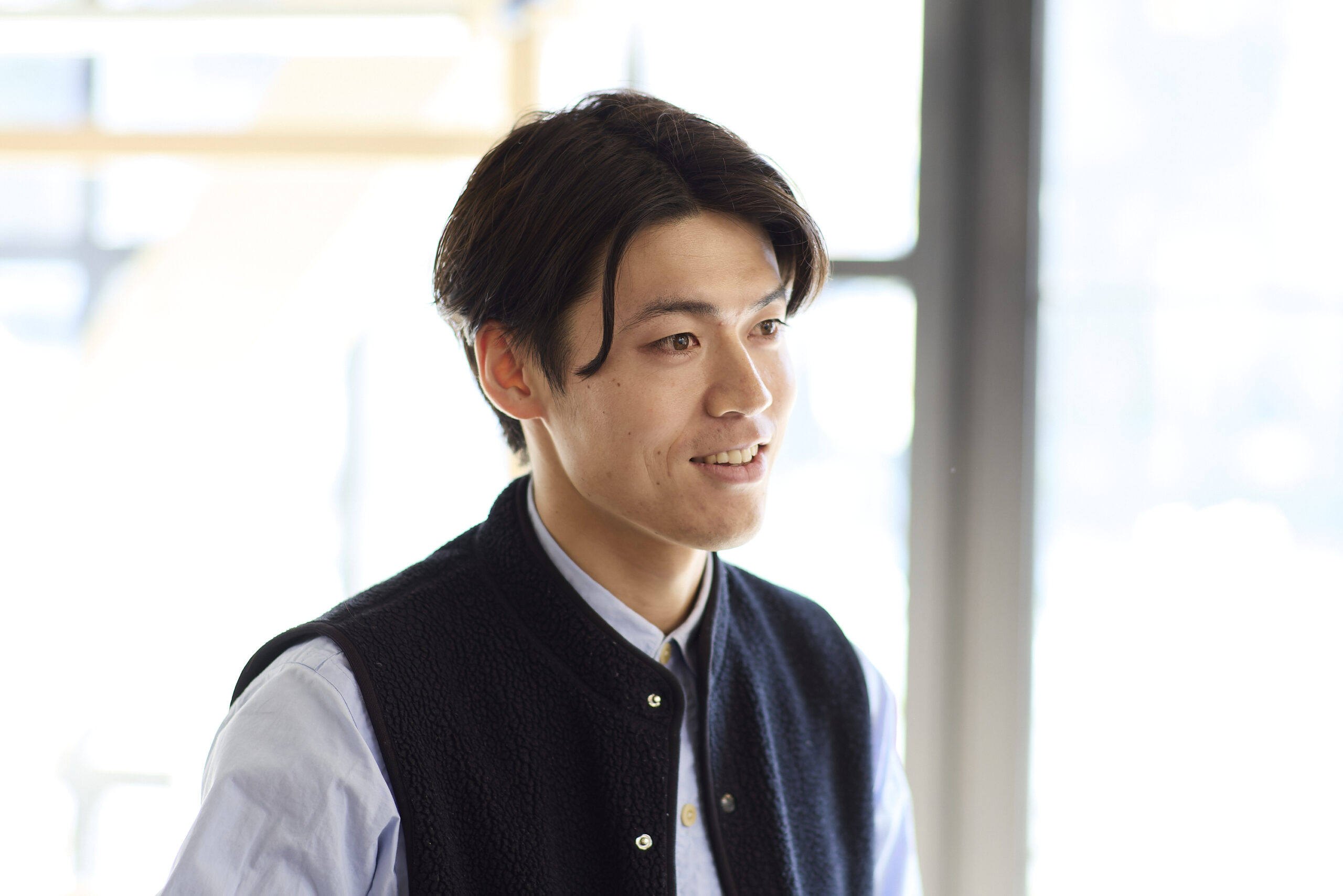
-A sign language class in a general subject at a university?
Hoshina-san That’s right. Sign language may have been strongly thought of as “welfare” in the past, but it is a “language. Recently, the way of thinking and education about sign language may have changed a lot.
My former teacher at the university, Ichiro Hashimoto-sensei*, with whom I still work as a sign language interpreter, was in charge of teaching sign language, and his deaf friends from inside and outside the university came to teach sign language. I became fascinated with sign language from the various perspectives in the class, such as learning about the background and history of the deaf and communicating directly with people who cannot hear. Even after the class was over, I would speak only in sign language, and in other classes I would speak in sign language because I would get angry if I spoke out loud (laughs).
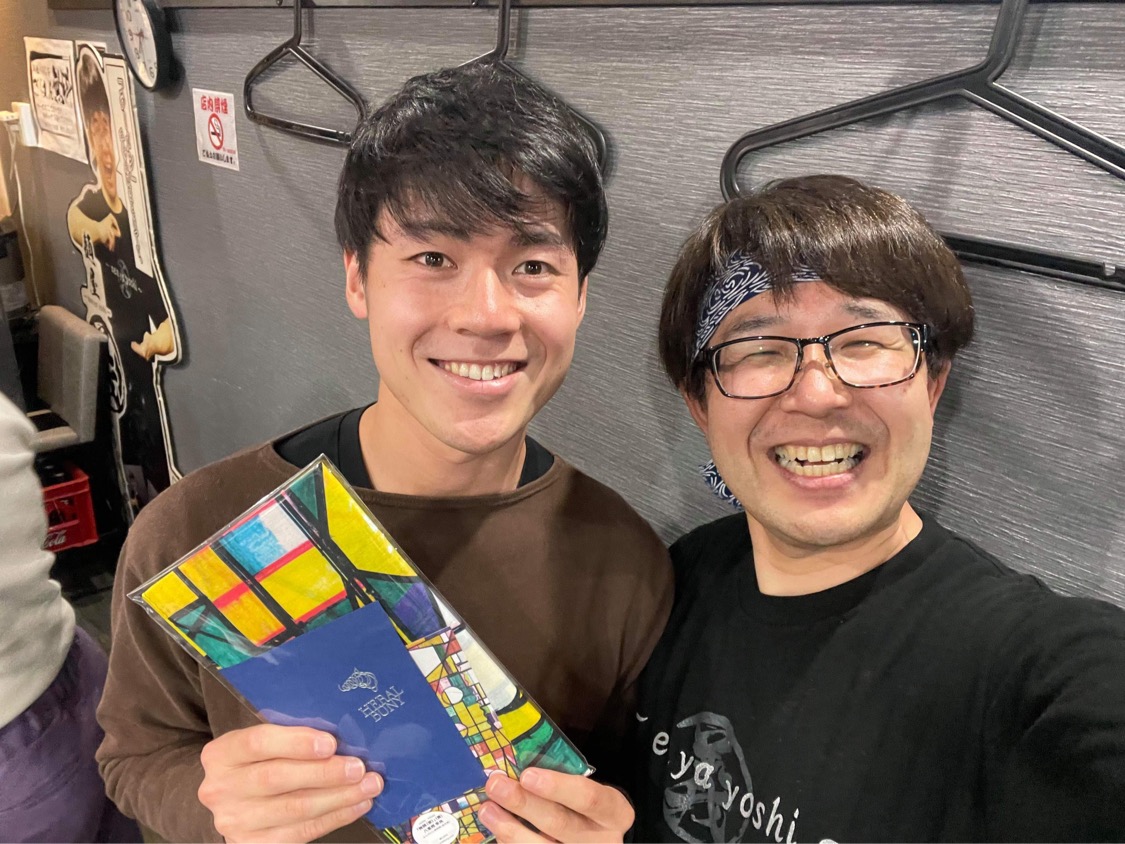
When I talk with people who cannot hear, I find that there is not much of a “wall” between us. I make eye contact with them, and I sometimes feel that it is easier to express my feelings in sign language.
I taught sign language to a child who can hear at a workshop I held with the Deaf. I heard a story from the mother of one of the children that she had a fight with the child and did not speak to him, but suddenly he told his mother “I love you” in sign language.
I think the good thing about sign language is that there are things that are difficult to say with voice, but can be conveyed with sign language. When you want to convey your thoughts as they are, you can do so more easily with sign language. I think this is a linguistic feature of sign language, and one of the charms I feel about sign language.
*Ichiro Hashimoto: Lecturer at the Nippon Foundation Volunteer Center’s training session “Bokatsu!” and coordinator of sign language interpretation, and instructor of training sessions at schools for the deaf. He co-chairs the dance art project “TSUMUGU+,” is a sign language performer, hosts weddings and assistance dog events, works at a ramen store, and holds his own independent live performances, among other activities that defy genre or mold.
-So you decided to become a sign language interpreter at that time?
Hoshina-san When I was job hunting, I didn’t have much of a “I want this job”… I wasn’t that good at interviews either, so I couldn’t get a job where I wanted. For the first year after graduating from college, I worked part-time at an apparel company.
That year, the Tokyo 2020 Paralympics were just around the corner. I was allowed to work as a sign language interpreter while working part-time, and that is when I started to enjoy it. However, it was also important for me to consider whether I could make a living as a sign language interpreter. My mentor, Ichiro, was very supportive during the time when I was struggling with various issues. Thanks to his support, I was able to enter the field of sign language interpreting.
-What do you find enjoyable and rewarding in your work as a sign language interpreter?
Hoshina-san It is great to be able to go with people who cannot hear and go to places they cannot go on their own.t do you find enjoyable and rewarding in your work as a sign language interpreter? I was involved in the opening and closing ceremonies of the Tokyo 2020 Paralympic Games, but I have also been on stage at events, in TV dramas, and on 24-hour TV… I am a freelance interpreter, and being able to go to various places and have various experiences is one of the important factors that have enriched my life as a sign language interpreter. Every place I visit with people who cannot hear is rewarding, and the most enjoyable part is being able to express their words and thoughts through communication with them on the spot. Perhaps it is because I can feel the sign language I have learned and met many people who have taught me deeply imbedded in my mind and body.
At first, I had no connections at all, but Ichiro-sensei took me to many work sites, and the people I met there approached me directly the next time. I felt like I was cherishing these connections as I continued to expand my circle of contacts.
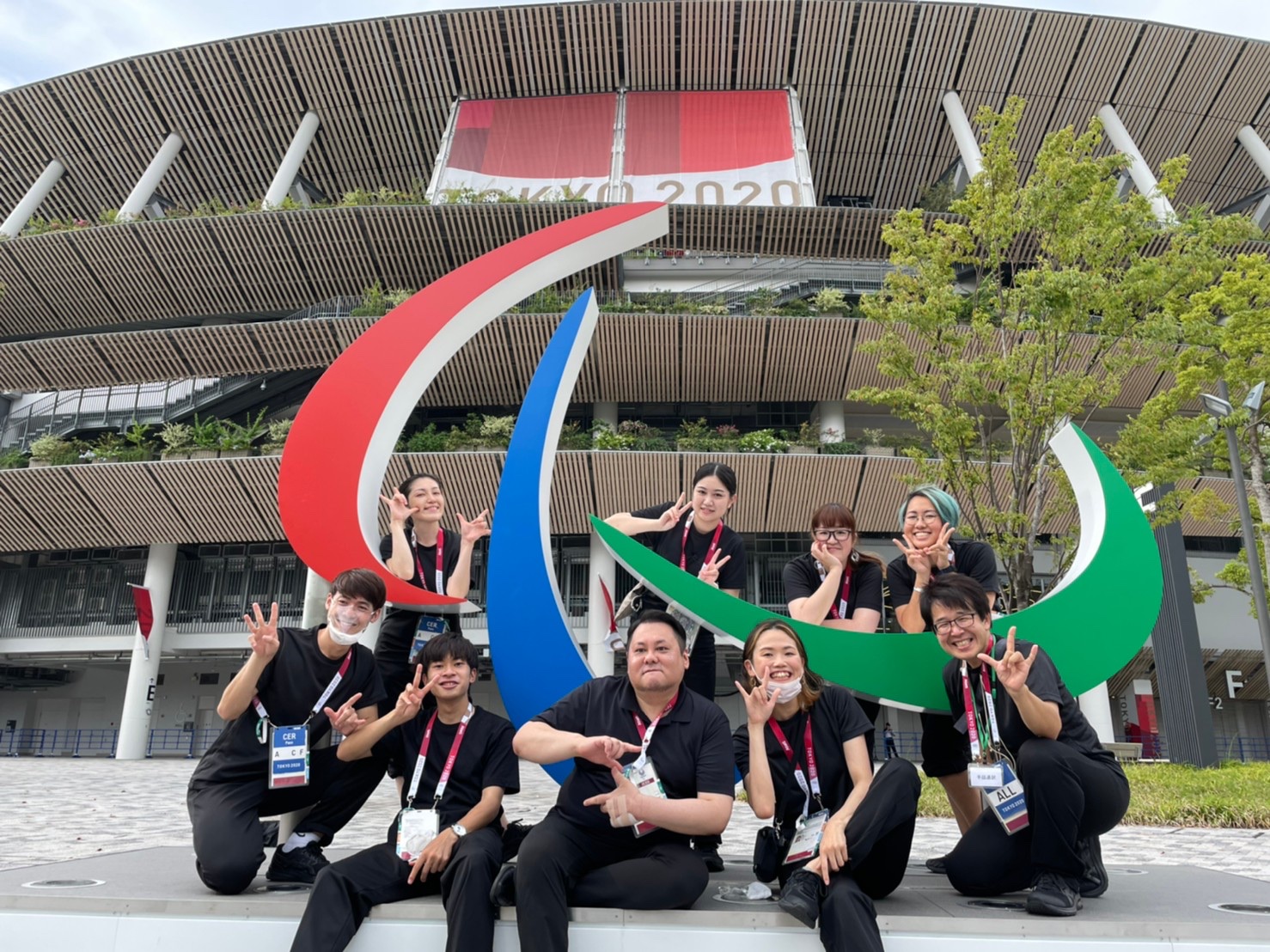
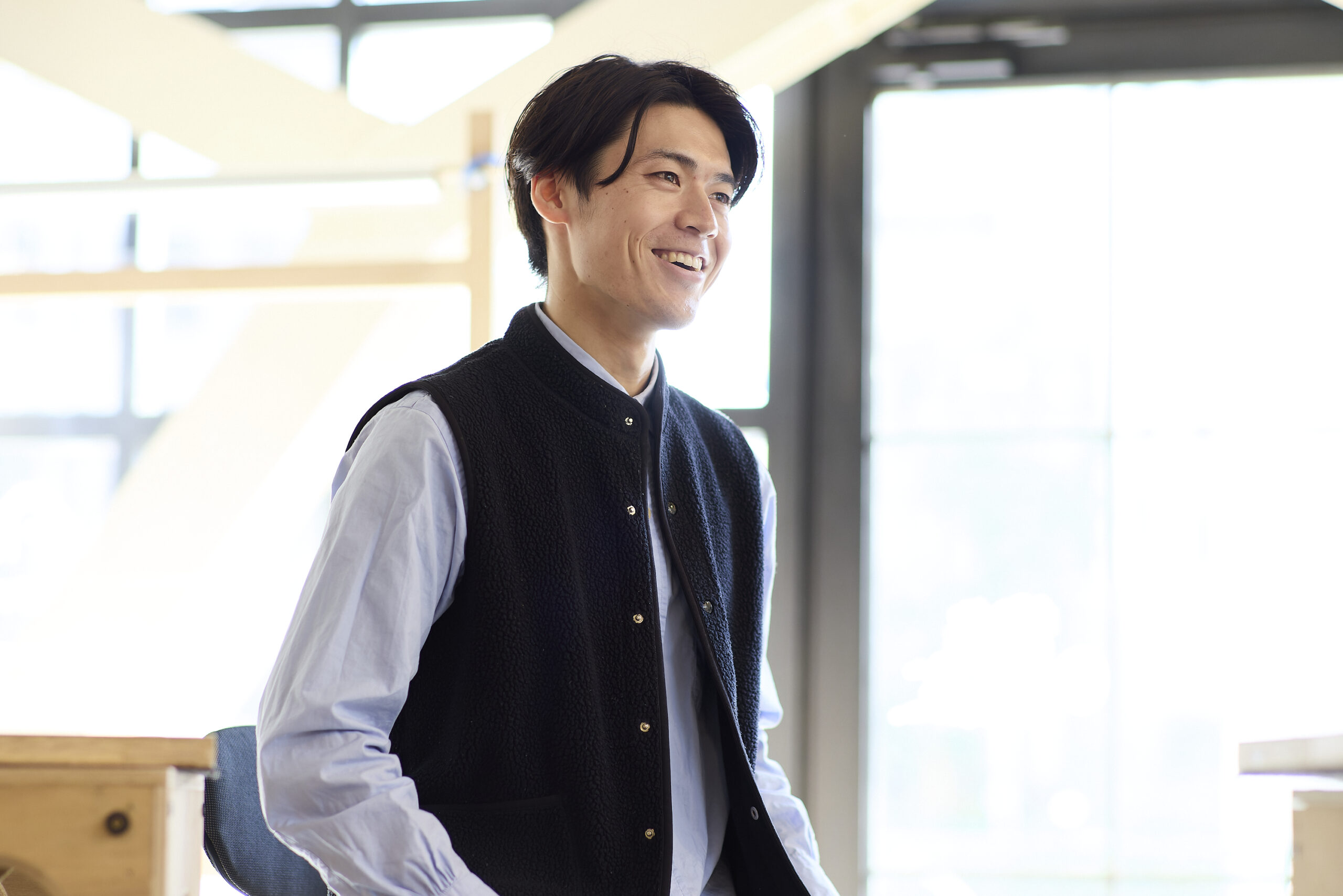
-What is important to you when you are a sign language interpreter?
Hoshina-san It is to convey the person’s charm as it is. Many people who cannot hear are really attractive and interesting. I place an emphasis on expressing that charm as an interpreter, which I find “interesting” when I am with them. That is, to speak more like “he/she is speaking”.
The important thing to do is to “know the person”. People tend to think that interpreting is just interpreting words, but without knowledge and understanding of the person, it is difficult to communicate well even when interpreting. Of course, preliminary research is important, but there is a limit to the amount of information that can be researched, so communication in the field is very important.
Based on this advance preparation, we try to match or change the tone, volume, and pitch of the voice, as well as the manner of speaking, for each subject when interpreting. We also try to express “the person’s personality” by matching the mood, facial expressions, pauses, and size of movements.
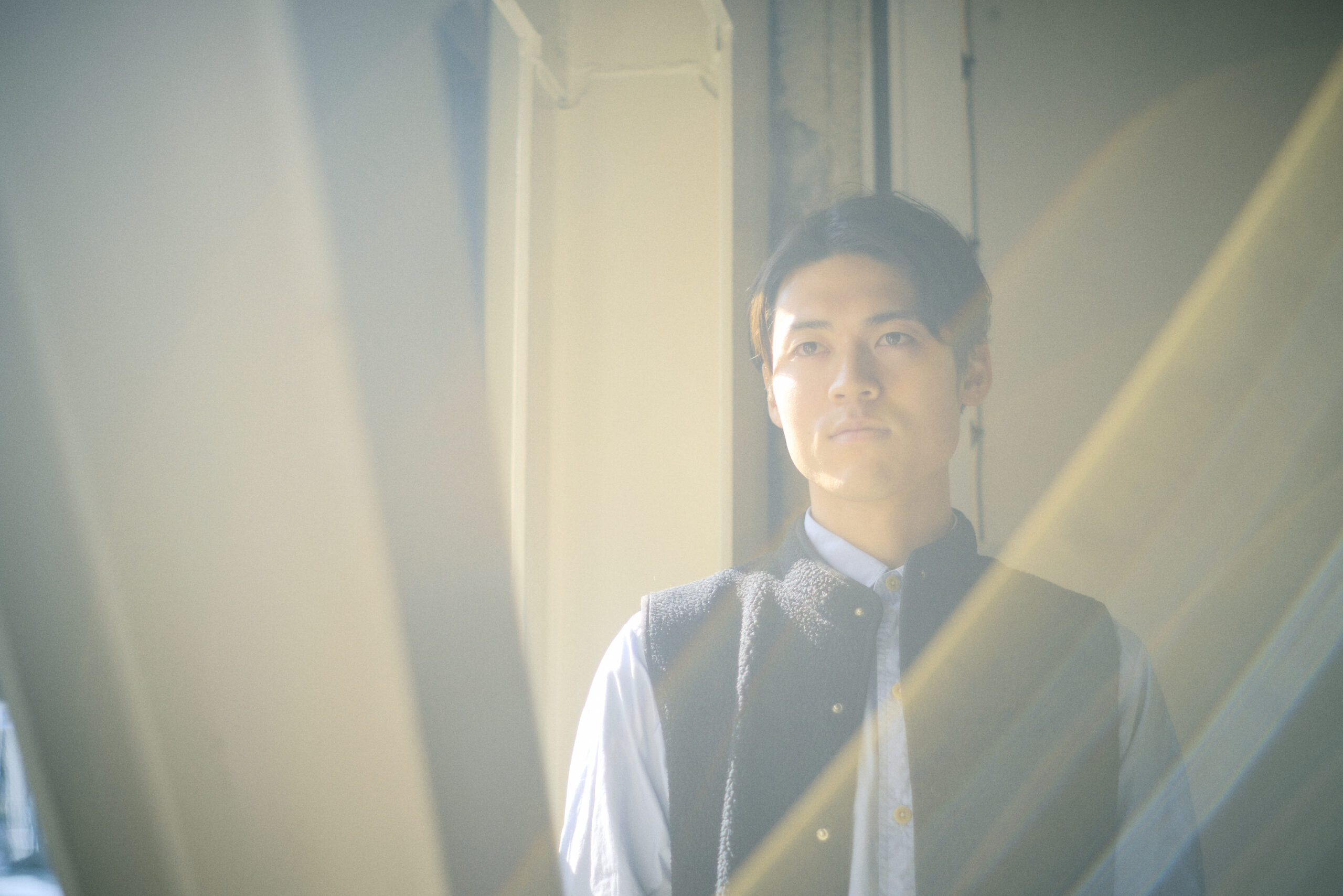
Sign language interpreters are often thought of as being there for those who cannot hear,but they are more like being there for those who can hear. I often hear people say, “I feel sorry for you because you can’t hear” or “You need a sign language interpreter because you can’t speak,” but that is not true. I would like to make people aware of the concept that “people who do not hear can communicate with each other using sign language, but for those who do not understand sign language”, interpreters exist as well. That is what I want to spread most in the world. If the way of thinking and the way of seeing changes, I think that society will move closer to “equality”.
Many people who cannot hear live in a society that is adapted to the culture of those who can. I think you are a professional who lives your life by reading the words of people you hear in your daily life, or rather, you live your life while thinking, “I will make an effort to be understood”. How do you perceive the situation? It depends on the environment in which we are placed, but more importantly, it depends on our own way of thinking. That is the key to success.
-What do you feel your experience has brought to your current work?
Hoshina-san I ran track and field in elementary, junior high, and high school, and was manager of the relay team at university. I also enjoy watching and participating in a variety of sports, not just track and field, so my knowledge of sports has been put to good use. Thanks to this, I have been given many opportunities to interpret for athletes.
For example, if someone doesn’t know the term “offside” or the rules of soccer, I can’t interpret for them unless I know the sport myself. I also understand the terminology and sensory information used not only in games but also in practice, and what is important in competitions, so I can interpret in a way that is close to the players. I feel that this is a very important factor for the athletes and a point where they can trust me. I once went to a training camp for athletes and ran with them. I thought that was also a form of communication.
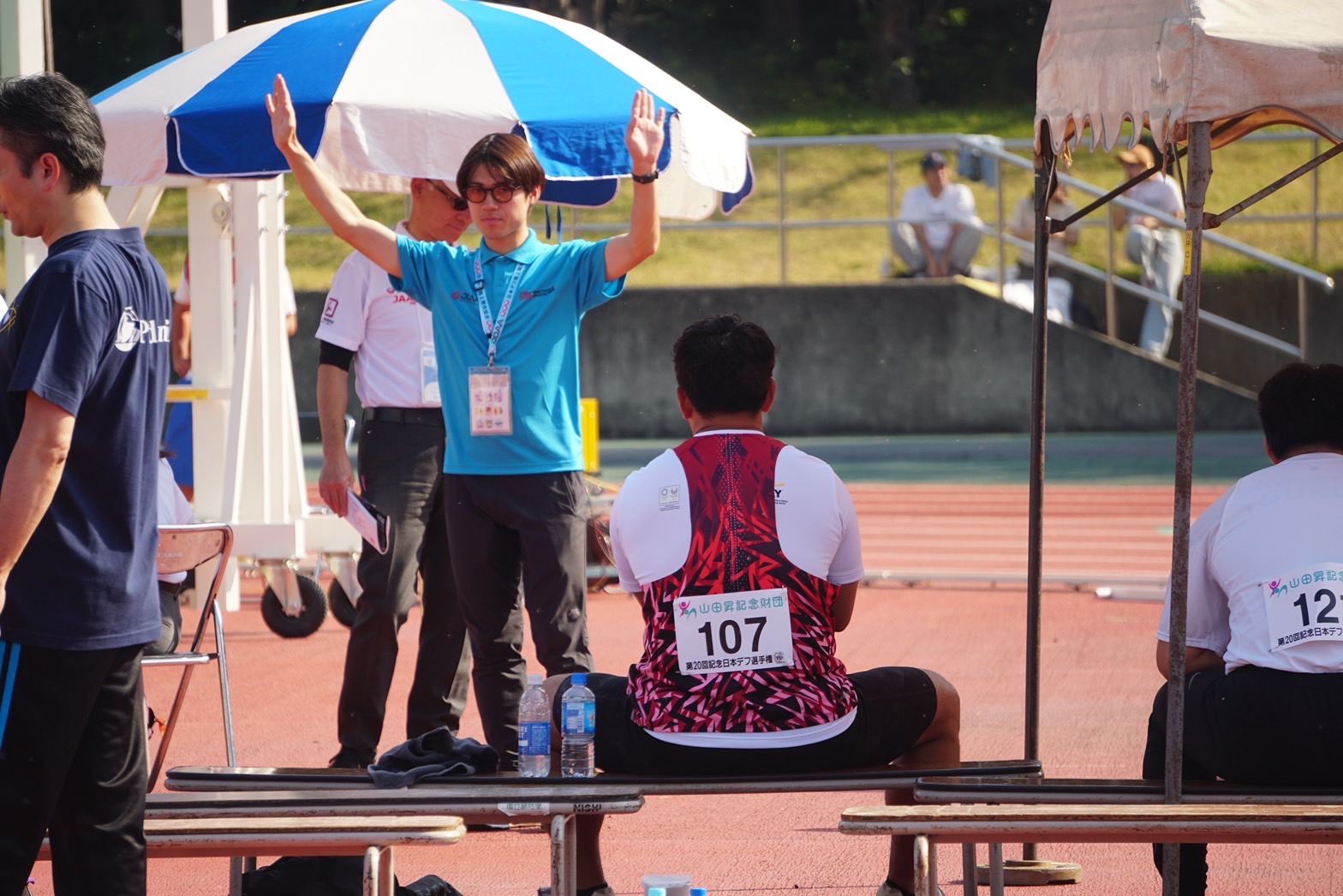
-I understand that you visited the Deaflympics in Caxias do Sul, Brazil in 2022.
Hoshina-san There were not many spectators at the venue because of the various restrictions imposed by the Corona Disaster, but I thought it was great to see all the spectators doing the sign language for applause, “Hirahira~” (both palms in front of the face). However, it didn’t feel like the “Deaflympics” in a good way. The rules for each event were basically the same as those for the audiences, and the spectators were all cheering loudly. It was simple, and the audience was really excited.
-Did you sign language interpret “Kimigayo” at the awards ceremony?
Hoshina-san That’s right. When I was watching the swimming awards ceremony, the Japanese athletes were about to receive their awards, but there was no one in the Japanese team who could sign the national anthem. So I was asked, “Can you sign the national anthem? “, and I was assigned as an interpreter for the national anthem.
-You have had a valuable experience.
Hoshina-san Yes, that’s right. However, there were times when sign language interpreters were not provided for the national anthem at other venues, and only music was played, and the athletes went to take pictures without noticing…. I felt it was a waste of an award ceremony.
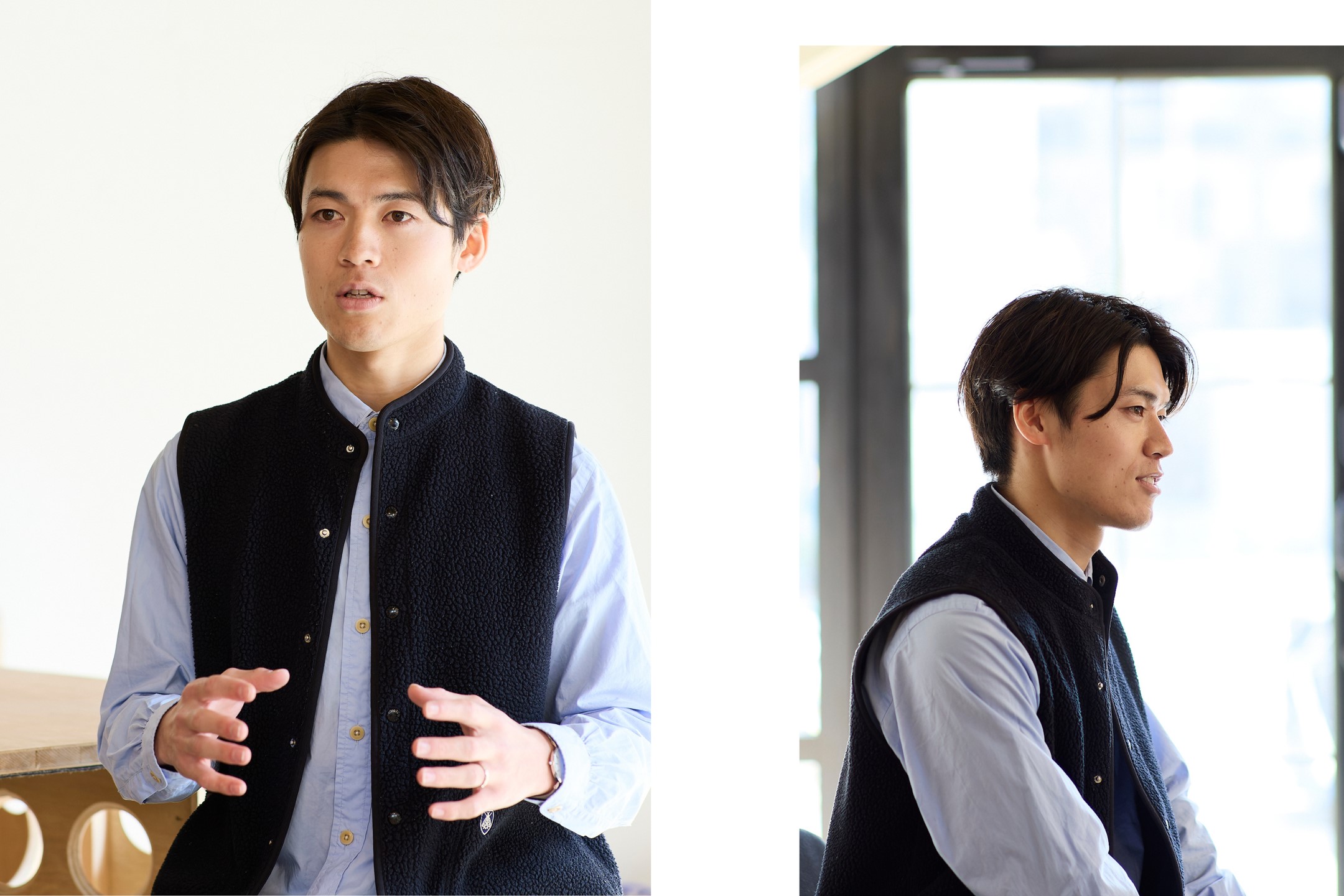
-Did you feel that there are areas for improvement for the Tokyo Games?
Hoshina-san It is necessary to create an environment where the athletes can concentrate on their competitions and where spectators who cannot hear can also enjoy themselves. From a competitive perspective, there was an international deaf athletics meet in Japan the other day, inviting athletes from more than 10 countries. I participated in the event as a sign language interpreter, and I found myself reflecting on how to communicate information to the athletes and how to guarantee their safety. Of course, it is not possible to proceed with the event on the initiative of those who can hear, and it is not possible to manage the event if only those who cannot hear understand. I think it is necessary to improve the means and places to share information and to coordinate with the referees.
-What improvements can be made in information transfer and assurance?
Hoshina-san One thing is to understand that international signs may not be viable alone. It seems to me that we should carefully consider how many athletes can sign International Sign Language in addition to the sign language of their home country. However, even though I do not yet have perfect command of international sign language, I have been able to communicate with foreign athletes at competitions. It is absolutely necessary to improve the accuracy of this “somewhat” information, but it is desirable to guarantee information in a form that can be understood by both athletes and staff from any country.
The second is that sign language interpreters must understand the rules of the competition. Only with this understanding can the athlete express what he or she wants to say, and the expression can be changed according to the situation. I think that it will be necessary to conduct common training programs for sign language interpreters to promote understanding.
-What is the current status of sign language interpreters?
Hoshina-san There are about 4,000 sign language interpreters in Japan. Nowadays, it seems that more and more young people are becoming sign language interpreters, and the number of those in their 30s is also increasing. It takes time to learn a sign language, and it is difficult to say that you have “completely mastered” the job. It’s a constant learning process, and things change with the times, and I have to learn new words. Compensation varies depending on the client, and it is difficult to make a living solely as a sign language interpreter. If people think that having sign language interpreters is “beneficial to both the hearing and the deaf,” I think the remuneration will increase… It would be great if sign language interpreters could become a part of society where sign language interpreting is a normal part of life. In order to achieve this, I would like to give a performance every day that will make people say, “I am glad I called a sign language interpreter”.
-What does Hoshina-san hope to achieve with the Deaflympics to be held in Tokyo for the first time in 2025?
Hoshina-san I would like as many people as possible to know the “charm” of people who cannot hear. I hope that people who cannot hear will be able to appreciate their charms and charms through our sign language interpreting services, and feel the joy of communicating with people who cannot hear. I would be happy if sign language interpreters could be the deliverer of this experience and make those who can hear feel the existence and necessity of sign language interpreting.
If there are more and more deaf people around, there may be more people who want to learn sign language and become sign language interpreters. In addition, there may be opportunities to learn sign language as a general education. If the range of communication is broadened, I think it will lead to a society where both those who can hear and those who cannot hear will find more interesting things to do.
The other thing is… information security.
-In what ways in particular?
Hoshina-san For example, if there is a certain pattern and the content can be converted into text or sign language in advance, such as emergency announcements on trains, it would be possible to display the text and sign language on the screen along with the voice announcement. It would also be effective to do this in conjunction with flashing lights. Many people wear earphones, so the visual information is not only for those who cannot hear, but also for those who can hear.
Of course you should enjoy the competition at the Tokyo 2025 Deaflympics, but I hope you will go to the venue and cheer directly for the athletes because they are all very welcoming and open to people who do not hear. Even if you do not speak sign language, I am sure that all Deaf athletes will smile at you. There are sign language interpreters at the venue, and even if there are no interpreters, you can still communicate with them.
-What would you like to try in the future?
Hoshina-san I would like to expand my activities as a freelance sign language interpreter. I would like to expand the scope of my activities as a freelance sign language interpreter, such as coordinating sign language interpreting, which I am still doing, and holding seminars and training sessions. I would also like to give lectures to make sign language more familiar to people. In order to do so, I would like to improve my ability to communicate.
Also, I am from Fukushima and love Fukushima, so I would like to make Fukushima, which is also the venue for the Deaf Soccer games, more exciting, and I would like to be active in Fukushima as well. Through sign language interpretation, I would like to reach out to my grandparents and family, who have guided me to where I am today.
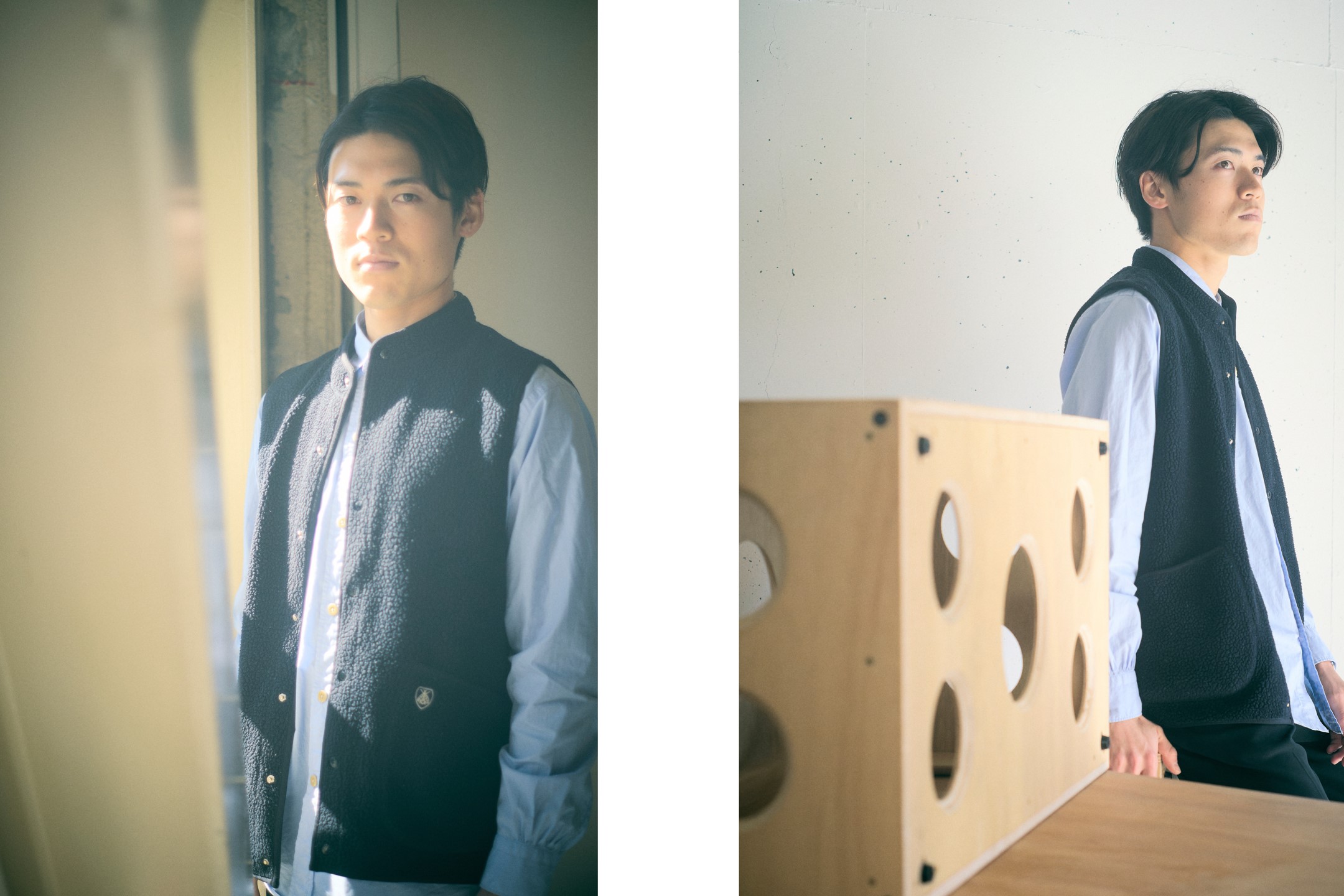
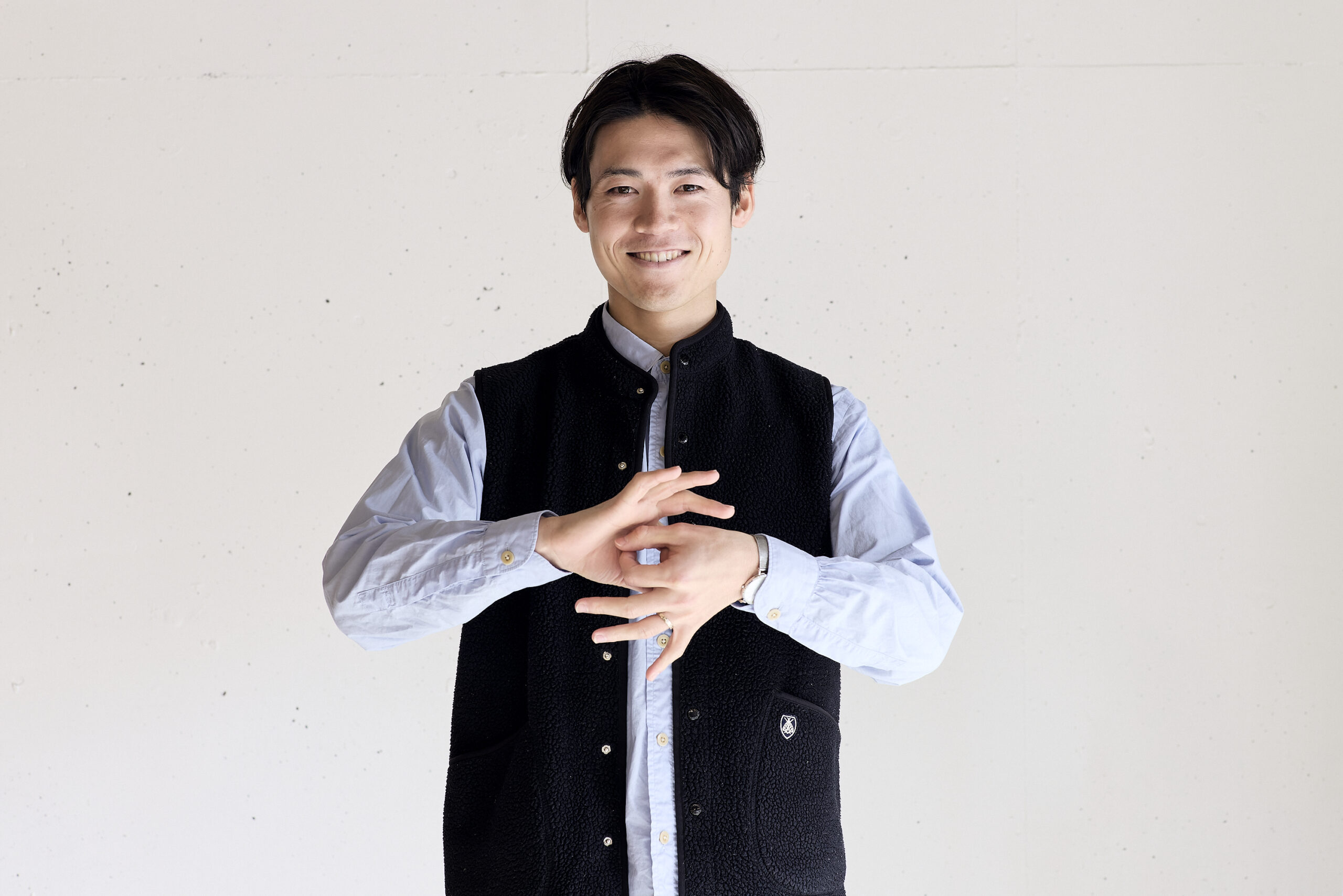
Toshiki Hoshina / Born in Fukushima
Sign language interpreter
Having grandparents who are Deaf, Hoshina has been familiar with sign language since he was a child.
He focused on athletics in elementary, junior high and high school. After entering Asia University, he was fascinated by his teacher Ichiro Hashimoto’s sign language classes and decided to become a sign language interpreter. After graduating from the university, he worked part-time for a year to earn a living while gaining experience as a sign language interpreter, and is now active as a freelance sign language interpreter.
With a keen interest in sports, such as track and field, and his experience at the Tokyo Paralympics and the Caxias do Sul 2022 Deaflympics, he has become friends with many domestic deaf athletes, regardless of their sport, and has provided sign language interpreting at many events.
Instagram:h.toshiki_
X:@7mLongjumper
2025.10.09

目次Until I accept my “Deaf self”A new scenery opened up by challengesBehind the 1 million You Tube […]
2025.10.09
目次Until I accept my “Deaf self”A new scenery opened up by challengesBehind the 1 million You Tube […]
2025.08.06

目次I was told that “I didn’t want to be born into a house like this”Hokkaido→ Yokohama→ Nagoya→ Yokohama […]
2025.08.06
目次I was told that “I didn’t want to be born into a house like this”Hokkaido→ Yokohama→ Nagoya→ Yokohama […]